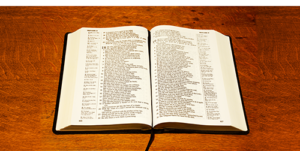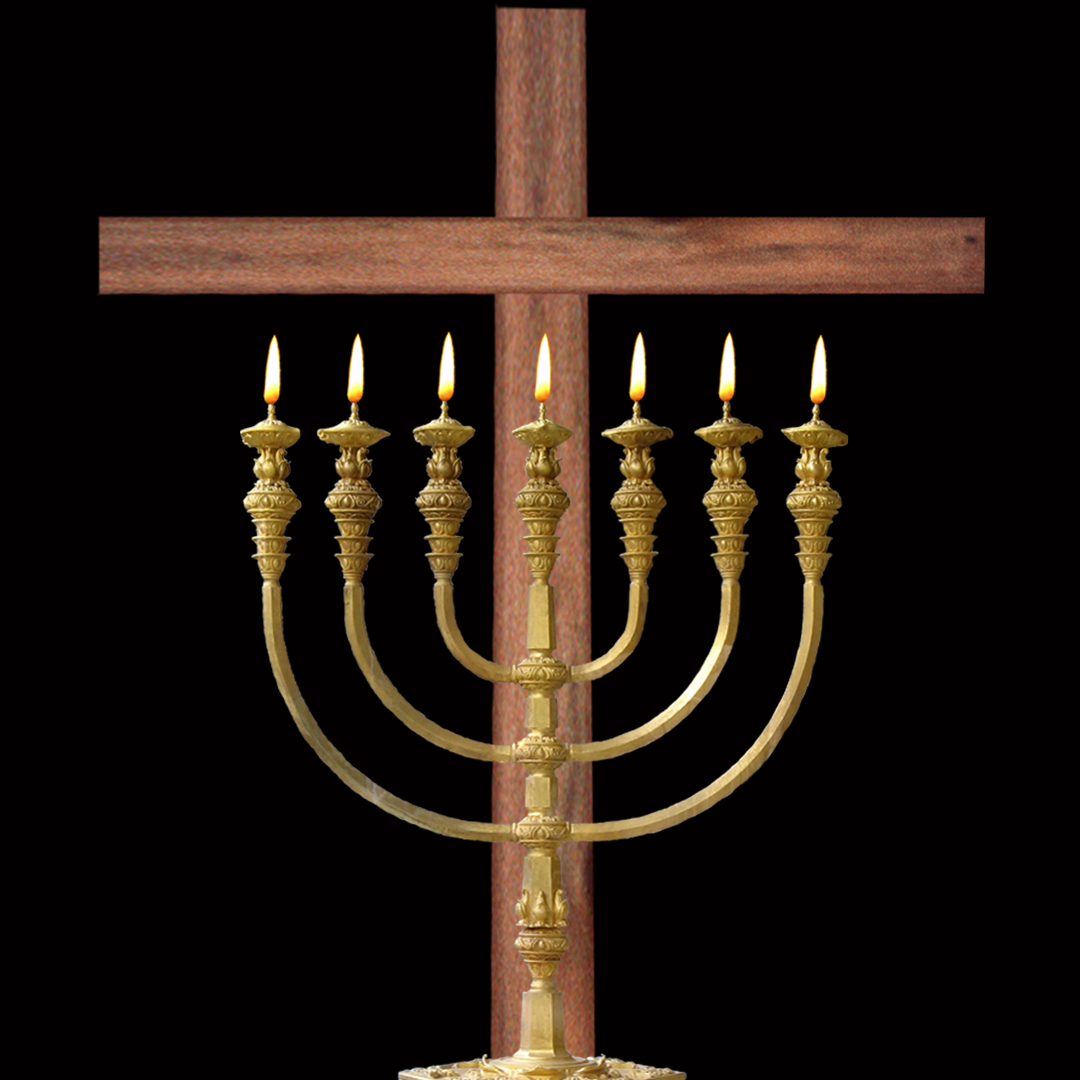Dr. McKellar’s Lesson for July 9, 2017
“Worship and Warning” Psalm 95:1-11 Bible Study 07/09/17
This morning our study of Psalm 95 will challenge us regarding the principle of God-centered worship. This psalm is an introductory psalm to a series of psalms devoted to the theme of worship (Psalms 95-100). Although Psalm 95 has no superscription or prescribed historical setting, it serves as a timeless reminder for believers to focus the attention of their minds and the affection of their hearts on the living God.
I. Hasten to Worship (1-5)
-methodology: focused, corporate and vocal
-reasons for worship: greatness, reality, sovereign hands
II. Heed the Call to Reverent Worship (6-7a)
-from animated speech to speechless prostration
-our Maker and our God
-His shepherding hand
III. Heed the Warning Related to Worship (7b-11)
-Today…
-do not harden your hearts
-Meribah and Massah (Ex. 17:1-7; Num. 20:1-13)
IV. So What?
-Knowing that you are prone to wander, prioritize worship in order to persevere in obedience.
-“Come Thou fount of every blessing, Tune my heart to sing Thy grace. Streams of mercy, never ceasing, call for songs of loudest praise…” (R. Robinson)
-Haphazard worship contributes to a hardened heart.
-Biblical worship is always rooted in biblical revelation.
Dr. McKellar’s Lesson for July 2, 2017
“Sacred Passion” Psalm 84:1-12 Bible Study 07/02/17
This morning we turn our attention to Psalm 84 and the psalmist’s intense longing for the presence of God. While we are unsure of the writer’s exact circumstances at the time of the composition of the psalm, we can be sure of the intense use of poetical Hebrew language to express the inestimable and incomparable value of fellowship with the living God.
I. Background/Context
-Gittith
-sons of Korah
-significance of “blessed”
II. Longing for God (1-4)
-intense longing
-not architecture but presence
-satisfaction in the living God
-blessed rest
III. Journeying with God (5-8)
-blessed seeking/pilgrimage
-expectation of Baca
-strength to strength
IV. Delighting in God (9-12)
-a king and a King
-the infinitely better status
-no good thing withheld
-sun and shield
-blessed trust
V. So What?
-View your pilgrimage through this life as an ongoing opportunity to respond to the living God with delighted trust.
-Magnify your pilgrim status.
-Rejoice in the fact that “God does not waste our experiences.”
-Ponder the current level of your passion for the presence of God.
-“The least degree of fellowship with God has delights superior to the greatest measure of earthly joys.” (Maclaren)
-Reflect on 2 Peter 3:8 and Romans 8:32!
Dr. McKellar’s Lesson for June 25, 2017
“Thanks for a Reason” Psalm 138:1-8 Bible Study 06/25/17
This morning we will examine the first of eight Psalms of David which are found in the latter part of the Psalter. Psalm 138 is an excellent example of praise offered up to God that is supported by accompanying and specific reasons.
I. Resolve and Reflection (1-3)
-action, object, scope and reasons
II. World Brought to Worship (4-6)
-kings thank and sing
-regard for the lowly
III. Completion of Mercies Begun (7-8)
-plans thwarted
-plotters judged
-promise fulfilled
IV. So What?
-Because His mercy endures and His glory is infinite, praise the LORD and proclaim the conquest and completion of His promises.
-“Heal me of my damnable self-sufficiency.” (T. Keller)
-“A line of praises is worth a leaf of praying.” (J. Livingstone)
-“Were our hearts as they ought to be when we read the word, we would tremble at that more than any manifestation of God since the world began in all His works.” (J. Burroughs)
Dr. McKellar’s Lesson for June 18, 2017
Guest Speaker: Daniel Dickard
“The Lord is my Shepherd” – Psalm 23
I. “The” signifies the exclusivity of the Lord.
II. “Is my shepherd” indicates that the Lord is present with us
and is our personal shepherd. We rest in the person of God.
III. “I shall not want” signifies that God is in control.
IV. “quiet waters” (A sheep cannot drink from rushing water.)
V. “He restores my soul” – rest is not just of the body but of the soul.
VI. “guides in the paths of righteousness” – paths signifies the ways God
requires us to go.
VII. “the shadow of death” reminds us that God is with us even in the inevitability
of death.
VIII. “rod and staff” signifies the Lord’s protection.
IX. “prepares a table” signifies the Lord’s forethought.
X. “dwell in the House of the Lord forever” – the promise of eternal life in the
presence of the Lord for the believer.
Dr. McKellar’s Lesson for June 11, 2017
Guest Speaker: David Norman
“Remembering Who We Are” – Psalm 78:1-39
I. Every generation has a responsibility to remember and
teach the things God has done (vv. 1-4)
II. Remembering God’s works leads to obedience to God’s Word. (vv. 5-8)
III. Forgetting God’s Works leads to defiance. (vv. 9-37)
IV. Remembering God’s character gives us hope. (vv. 38-39)
Dr. McKellar’s Lesson for June 4, 2017
“The Blessed Man” Psalm 1 Bible Study 06/04/17
This morning we begin a thirteen week survey of the Psalms. The “worship manual” and “hymnbook of the Hebrews” has been a source of comfort, correction, conviction and challenge for believers of every generation.
I. Overview
-Psalmoi (LXX): poem to be sung to stringed instrument
-Historical Significance
-Dating: latest 2500 years ago/ earliest 3500 years ago
-informing the intellect, arousing the emotions, directing the will, stimulating the imagination
-Interpretive Challenges: chronological, cultural and theological
-Pervasive principle of repetition
-Connection to Christ: Luke 24:44
-Three Assertions: reality, reign and response
II. Designated “Books”
-1-41
-42-72
-73-89
-90-106
-107-150
III. Genre Classification
-Hymns
-Lament
-Thanksgiving Psalms
-Psalms of Confidence
-Psalms of Remembrance
-Wisdom Psalms
-Kingship Psalms
IV. Psalm 1: The Blessed Man
-Because your eternal destiny is at stake, nothing matters more than a right relationship with God.
1. Consider the direction of the righteous man (1-2)
-negative assessment and use of parallelism
-positive assessment-delight in “torah”
2. Consider the description of the righteous man (3-4)
-planted tree
-fruit in season
-does not wither
-contrasted with the wicked: “Not so the wicked.”
3. Consider the destiny of the righteous man (5-6)
-contrasted with the wicked
-“for the LORD knows…”
-contrast: “blessed” and “perish”
V. So What?
-Affirm the enormous value of biblical meditation.
-Recognize the absolute necessity for scriptural saturation.
-Appreciate the profound connection between the Psalms and Christ.
-Consider Psalm 119:9-16 this week.
Dr. McKellar’s Lesson for May 28, 2017
“What Now?” Matthew 28:16-20 Bible Study 05/28/17
This morning we turn our attention to the concluding verses of Matthew’s gospel. After recording the reality of the resurrection (28:1-15), he closes his inspired writing not with Christ’s ascension but with His commission. The “Great Commission” constitutes Christ’s “marching orders” for the church in every generation.
I. Background/Context (16-17)
-after resurrection
-instruction to meet in Galilee
-commission before ascension (Acts 1:6-11)
-eleven disciples: worship and “hesitation”
II. Authority (18)
-all authority: every conceivable realm
-right to rule and power to exercise rule
III. Assignment (19-20a)
-connection with “therefore”
-one command: make disciples of all nations (ethne)
-disciple: learner, pupil, apprentice
-three amplifying participles: going, baptizing, teaching
-going: active, initiative, offensive
-baptizing: name, Trinitarian formula, identification
-teaching: instruction, comprehensive-all that I have commanded you
IV. Assurance (20b)
-Look!
-I AM (John 8:58)
-with you always to the “completion of the age”
V. So What?
-Armed with the authority and presence of Jesus, invest in the task of making disciples of all nations.
-“Jesus came to seek and save the lost and on the same mission He has sent His church.”
-“We must be global Christians with a global vision because our God is a global God.” (Stott)
-“The Great Commission is not an option to be considered; it is a command to be obeyed.” (Hudson Taylor)
Dr. McKellar’s Lesson for May 21, 2017
Guest Speaker: Dr. Barry McCarty
“Paul’s Mentoring of Philemon” – Philemon
Colossians 4:7-9 — Tychicus carries Paul’s letter to the Colossians
to Colossae and also brings along with him Onesimus, who carries the
letter to Philemon.
Dr. McKellar’s Lesson for May 14, 2017
“A Case of Contrast” Matthew 26:57-75 Bible Study 05/14/17
This morning we will focus on a text that presents us with the dramatic contrast between a loyal response to the Lord and a disloyal response to the Lord. Our loyal Lord Jesus is resolute under pressure and is vindicated ultimately. Peter, in his disloyalty, fails miserably but goes on to become the beneficiary of the loyal Lord’s restorative mercy. This case of contrast communicates the majestic consistency of Jesus, reminds us of the reality of human frailty and holds out hope for faltering followers.
I. Silence and Abuse (57-68)
-before Caiaphas
-Peter follows at a distance
-“kangaroo” court proceedings
-silence of Jesus (Isa. 53:7)
-“You have said so.”
-Son of Man designation (Dan. 7:13-14)
-torn robes and charge of blasphemy
-verdict and abuse
II. Denial and Remorse (69-75)
-evasive response
-emphatic response
-more emphatic response (anathema)
-rooster crows (Luke 22:31-34)
-remembrance and grief
III. So What?
-Because of the complete loyalty of the Son to the Father, there is hope for faltering followers.
-Remember the “rest of the story.” (John 21: 15-19)
-Affirm that, because God is faithful and forgiving, failure does not have to be final.
-Bless the Lord regularly for His “benefits.” (Psalm 103:1-5)
Dr. McKellar’s Lesson for May 7, 2017
“A Place Called Gethsemane” Matthew 26:36-46 Bible Study 05/07/17
Following the institution of the Lord’s Supper and the prediction of Peter’s denial, Matthew offers a Spirit-inspired account of our Lord praying in the garden of Gethsemane. These verses record the last period of time in the earthly ministry of Jesus leading up to His betrayal, arrest and crucifixion. Spurgeon, referring to this text, noted that “we come to the holy of holies of our Lord’s life on earth.” Carson observes: “As His death was unique, so also was His anguish; your best response to it is hushed worship.” Facing ultimate rejection and an agonizing death, Jesus utterly resigns Himself to the will of His Father.
I. Prayer of Submission
-instructions to disciples
-emotions of Jesus: grieved and distressed (Psa. 42:6, 11; 43:5)
-three-fold prayer and progression: not “impositional” praying
-sonship, cup and will
-significance of “cup” (Psa. 11:6, Isa. 51:17)
II. Prostration of Person
-fell on His face
-only in Matthew (Luke 22:39-46: sweat drops, attended by angel)
-prostrate in prayer in the “oil press” (Gethsemane)
-Isa. 53:3 and 2 Cor. 5:20-21
III. Picture of Disciples
-exemplified in the “inner circle”
-drowsy disciples as the “hour” is at hand
-failure to keep on watching and praying
-human frailty: willing spirit, weak flesh
IV. So What?
-The submission of Jesus in drinking the cup of God’s wrath means that sinners can be delivered from having to drink it.
– Meditate on “Man of Sorrows, What A Name” (Bliss) and “ I Stand Amazed in the Presence” (Gabriel)
-Affirm the full humanity and deity of Jesus. He suffered for us. He sympathizes with us.
-Spend some time this week in prayerful awe and hushed worship.
-“One shrinks from touching this incomparable picture of unexampled sorrow, for fear lest one’s finger-marks should stain it.” (Maclaren)


